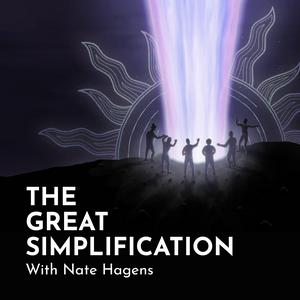Living Without Fossil Fuels: How Living Energy Farm Created a Comfortable Off-Grid Lifestyle with Alexis Zeigler
As we deepen our understanding of the existential challenges facing humanity, the path from our industrialized lifestyles to ones that respect planetary boundaries can often feel unclear and overwhelming. However, there are already individuals and communities who have transformed their way of life to do just that. What are the lessons they’ve learned along the way, and how might we use them to transform our own lives? Today, Nate is joined by Alexis Zeigler, a founding member of the cooperative community Living Energy Farm, to take a peek into the Farm’s unique daily life and explore their innovative systems for using electricity and technology in ways that are far less consumptive than the average American. Alexis also explores the benefits of shared resources, how social norms have made modern housing designs inefficient, and the crucial role community-building plays in creating truly effective off-grid lifestyles. What practical steps can individuals take to shift away from the hyper-consumptive lifestyles popular in industrial societies? Why is it important to mix technological innovation with social and collaborative transformation? Most of all, how could we replicate and adapt the Living Energy Farm model across different regions and cultures in order to increase the number of humans living sustainable and fulfilling lives? About Alexis Zeigler: Alexis Zeigler is a self-taught activist, builder, mechanic, writer, and orchardist. He has organized numerous successful campaigns focusing on political, environmental, and economic localization issues. Since 2010, he has been working to build and grow Living Energy Farm, a zero-fossil-fuel and mostly self-sufficient farm that prioritizes collective living principles. Their mission is to serve as an example and actively promote lifestyles and technologies that are truly sustainable, and to make these sustainable technologies accessible to all persons regardless of their income or social position. Their minimalist website, www.livingenergyfarm.org/, has more information about the technologies they use. (Conversation recorded on March 5th, 2025) Show Notes and More Watch this video episode on YouTube Want to learn the broad overview of The Great Simplification in 30 minutes? Watch our Animated Movie. --- Support The Institute for the Study of Energy and Our Future Join our Substack newsletter Join our Discord channel and connect with other listeners
